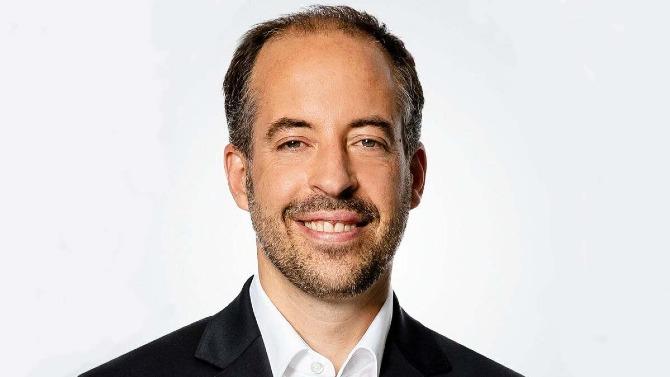PwC insights into how the compliance function is being transformed
Compliance Transformation 2030+

A new era of compliance: digital transformation, innovation and strategy
The compliance function is undergoing profound changes. Growing regulatory demands, new technological developments and growing geopolitical uncertainties demand a response from businesses, in the form of strategic realignment. The days when compliance was purely a controlling function are far behind us, and it is now evolving into a business-critical element that ensures innovation and gives companies a competitive edge.
Our insights highlight how you can future-proof your compliance function – from digital transformation and integration into business processes, all the way up to new roles and skills. Explore our publications below to find out more about where we we stand today when it comes to compliance transformation in Germany, the German-speaking countries (DACH) and worldwide, and to understand what you need to do to actively shape this change.

Where does your company stand in terms of compliance transformation?
Find out! Our quick check provides you with an indication of the status of your compliance management. It shows you how strategically aligned you are with regard to future challenges. Participation is free of charge, non-binding, and offers you the opportunity to get in touch with our compliance experts.
Our insights into compliance transformation

Global Compliance Survey 2025: Reinvent compliance to speed up, not trip up
In our global study, we asked 1,800 senior executives worldwide about their compliance practices and challenges, and about the evolution of their compliance functions.
Current global challenges – driven by various macroeconomic forces and crises, but also the sheer mass of global regulations – are creating an unprecedented complexity and costs for businesses. This situation has led some businesses to restructure their compliance function, and in return to become “compliance pioneers”. They have evolved their tech, processes and talent models to mitigate risks, manage costs and gain new insights. On top of this, they also managed to use their new knowledge – in the form of newly acquired data and information – to gain a strategic advantage. For other businesses, however, the growing complexity has led to management being distracted from their core tasks and valuable resources being lost, undermining trust and limiting the company’s ability to effectively pursue strategic and competitive goals.
Key results of the study
- Around 90 % of the executives we surveyed confirmed that the scope of their compliance management system (CMS) has significantly expanded over the past three years.
- 71 % expect their company to launch digital transformation initiatives within the next three years that will require the support of the compliance department.
- 41 % of the surveyed executives need help when it comes to new business models.
Financial Services Industry Lens
Technology, Media & Entertainment Industry Lens

DACH region study on Compliance Transformation 2030+: From back office to value chain (status report 2024)
Current geopolitical crises and wars, inflation and economic uncertainty are creating huge challenges for companies in the DACH region. This situation is being exacerbated by rapidly changing regulations. How can compliance functions respond to this polycrisis, and how can they anticipate future challenges? Questions such as these are the focus of this study.
The results of this study show that we are seeing a fundamental change in the compliance function, and the underlying causes and drivers of this transformation remain critical issues. The increasingly stronger orientation of entrepreneurial actions towards risk leads to widened responsibilities of compliance officers and, as a result, triggered many other changes throughout the value chain. This study examines this compliance transformation using seven indicators.
- Transformation indicator 1: Compliance officers are transforming from being experts on traditional compliance issues to strategic portfolio managers.
- Transformation indicator 2: Corporate compliance functions are taking on ever greater responsibility for ESG management.
- Transformation indicator 3: Corporate compliance functions are involved in safeguarding product management.
- Transformation indicator 4: Compliance is shifting from a reactive monitoring function into a proactive, business-critical function, in which culture and integrity play a key role.
- Transformation indicator 5: Workforce transformation – from focused specialists to an agile, multidisciplinary team.
- Transformation indicator 6: Digital transformation is both a potential risk and an effective compliance tool.
- Transformation indicator 7: Integration into other management systems is becoming a success factor.
Did we spark your interest in our Compliance Transformation 2030+ study? Then click the link below. You’ll receive a link to a short 10-minute survey. Upon completion, we’ll send you our exclusive and wide-ranging insights into the results of this study.

Digital trust insights: dealing with cyber risks is becoming a top priority
The majority of companies worldwide see cybersecurity regulations as an opportunity. Nevertheless, 21% believe that there are significant challenges: some German executives say that regulations hinder their ability to manage regulatory changes and maintain compliance, leading to unexpected costs and disruption. For more key findings, check out the report on our global cybersecurity study.

The future of compliance in the pharmaceutical industry
In the pharmaceutical industry, compliance is subject to various factors: legal and financial factors, technological and medical innovations, cultural influences, and the realities of educational policy and demographics.
In collaboration with industry experts from the compliance field, PwC has developed the whitepaper 'The Future of Compliance in the Pharmaceutical Industry’. It offers a comprehensive overview of current issues and key compliance challenges, and provides information about trends and risks, along with their impact on companies in the pharmaceutical industry.

Strategic roadmap: the route to compliance with the AI Act
AI regulations and standards in the EU are growing. The EU’s AI Act is the world’s first set of comprehensive, risk-based rules for AI systems. This development makes it critical for businesses to proactively prepare to comply with the new regulations.
PwC – your partner for future-proof compliance
With decades of experience and an interdisciplinary team of compliance experts, lawyers and technology specialists, we at PwC can help you transform your company’s compliance function. Combining regulatory know-how with digital solutions, we work to minimise risk, increase efficiency and strategically integrate compliance into your value chain – making compliance a success factor for your business.

Jörg Tüllner
Jörg Tüllner is a Partner at PwC Germany in the Risk & Regulatory division. He has been with PwC Germany since 1996, bringing over 27 years of practical project experience across various industries. As a member of the Risk & Regulatory Leadership Team, Jörg actively oversees and manages numerous national and international projects related to Governance, Risk, and Compliance.

Kolja von Westerholt
Kolja von Westerholt is a Partner at PwC Germany in the Risk & Regulatory division. He has been with PwC Germany since 2007 and possesses extensive consulting experience in corporate governance, compliance transformation, and risk management. As Co-Lead for Product Compliance Services, Kolja specializes in the establishment and effective operation of product compliance management systems.





